-
Join the
Digital Meets Culture
Open Newsroom! If you have interesting news and events to point out in the field of digital cultural heritage, we are waiting for your contribution.
If you have interesting news and events to point out in the field of digital cultural heritage, we are waiting for your contribution.
-
Free text
-
-
Upcoming events
-

Step into the world of history and heritage through stunning 3D collections that bring the past to life. From pre-cinema artifacts in Girona to everyday objects and cultural emblems from the ancient oppidum of Bibracte in Burgundy, these collections … Continue reading →
 The deadline for submitting photographic projects for the AIPAI PHOTO CONTEST has been extended
The deadline for submitting photographic projects for the AIPAI PHOTO CONTEST has been extendedThe deadline for submitting photographic projects for the 3rd edition of the AIPAI PHOTO CONTEST, the photography contest organized by the Italian Association for Industrial Archaeological Heritage ETS, has been extended to October 31. The contest is organized in collaboration with DICEA … Continue reading →
 Brussels, November 13th and 14th, 2024
Brussels, November 13th and 14th, 2024On November 13th and 14th, OpenLab.brussels is hosting the international conference “Creating Knowledge through Participatory Research” in Brussels. The OpenLab.brussels is a joint venture of ULB-VUB dedicated to participatory research. It aims to mobilize our academic community and public or private stakeholders … Continue reading →
Area: digital heritage
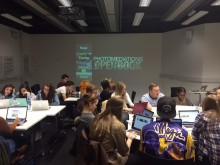
by Kamila Kuc, Goldsmiths On 23th and 30th October 2015 Ross Varney (Coventry) and Kamila Kuc (Goldsmiths) ran interactive seminars for five groups of undergraduate students at Coventry University, in which they introduced the main outcome of the Open and … Continue reading
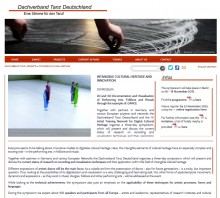
Europeana Space and the Dance pilot in particular was presented by the coordinator Sarah Whatley at this three-day symposium, which discussed the current status of research on recording and visualisation techniques and their application within the field of intangible cultural heritage, … Continue reading
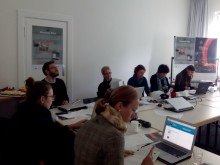
by Beatrix Lehmann, Museumsmedien On October 29th and 30th the workshop “Presentation and evaluation of the Toolbox” took place in Berlin, at German Resistance Memorial Center. The memorial is content provider of the Toolbox pilot and hosted the workshop together … Continue reading

A new release of DPF Manager is now available for download in the PREFORMA Open Source Portal. DPF Manager is an application and a framework designed to allow end users and developers to gain full control over the technical properties and structure of TIFF images intended for Long Term Preservation. The main objective is to give memory institutions full control of the process of the conformity checks of files. Continue reading

October’s release of MediaConch (v15.10) features a brand new implementation checker concentrating on Matroska and EBML conformance checks, as well as several illustrative policy sets allowing users to carry out conformance checking on preservation master files, among other workflows. Dave Rice and Ashley Blewer will be presenting on MediaConch at the Association of Moving Image Archivists (AMIA) Conference in Portland, OR, USA (20 Nov). Continue reading
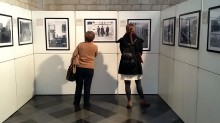
E-Space Photography Pilot was a guest exhibitor at the “Kunst in eigen Huis” (Art at Home) event on 22-23 October 2015 in Leuven, Belgium. The event was organized by KU Leuven groups of Seniores and students in Cultural Studies and wanted … Continue reading
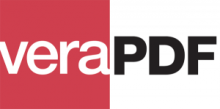
The veraPDF consortium is pleased to announce that the latest release of the veraPDF PDF/A validation software and test-suite currently under development is now available in the PREFORMA Open Source Portal. Led by the Open Preservation Foundation and the PDF Association, the veraPDF consortium is developing the definitive open source, file-format validator for all parts and conformance levels of ISO 19005 (PDF/A). Continue reading

The final conference of Civic Epistemologies project takes place in Berlin on 12-13 November 2015: Digital Heritage and Innovation, Engagement and Identity. Two lines will be explored during the Conference: Digitisation is producing a big change that is impacting cultural … Continue reading
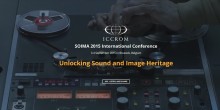
Unlocking Sound and Image Heritage was the theme of SOIMA 2015 conference held on 3rd-4th of September in Brussels, Belgium at the Royal Flemish Academy of Belgium for Science and Arts, organized by ICCROM (International Centre for the Study of the Preservation and … Continue reading
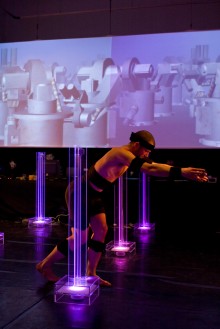
C-DaRE is pleased to announce that we have been awarded a number of fully funded full-time PhD Studentships available for highly motivated postgraduates wanting to undertake research from January 2016. We welcome applications that propose topics that align with one … Continue reading























